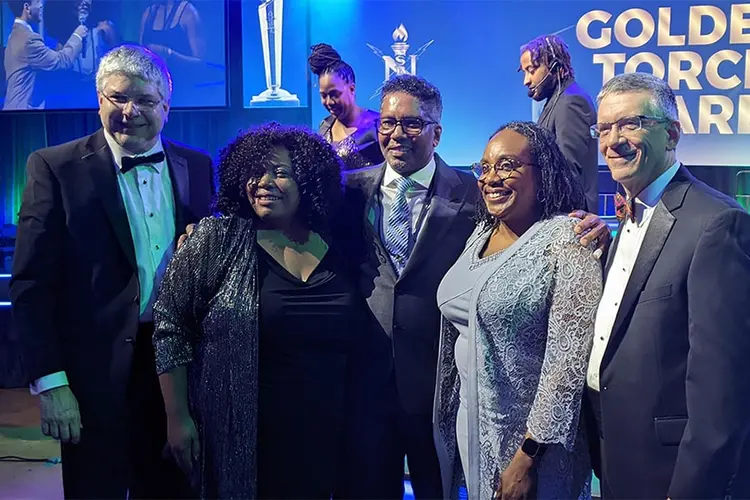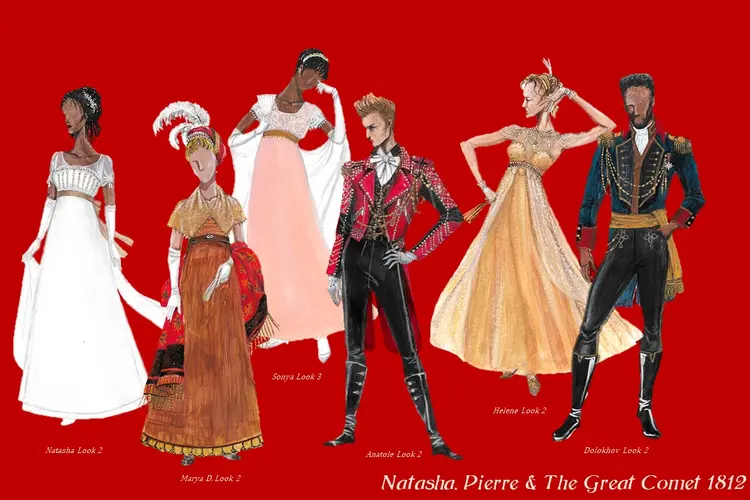Hebert, Hooker and Kraut Named University Professors
Media Inquiries
Three Carnegie Mellon University faculty members have been elevated to the rank of University Professor(opens in new window), the highest distinction a faculty member can achieve at CMU.
The newly appointed University Professors are Martial Hebert, John Hooker and Robert E. Kraut.
"Carnegie Mellon's world-class faculty are at the heart of our mission to provide exceptional educational experiences for our teaching and learning community. We are proud to honor our new University Professors with this distinction, which exemplifies their contributions to education and their exceptional achievements," said Provost and Chief Academic Officer James H. Garrett, Jr. "Please join me in congratulating Martial, John and Robert on their appointments."
University Professors are distinguished by international recognition and for their contributions to education, artistic creativity and/or research. Each exemplifies this high level of achievement and commitment to the university and the broader academic communities.
Martial Hebert(opens in new window) (above) is the dean of the School of Computer Science(opens in new window) and a professor in the Robotics Institute(opens in new window).
A native of France, Hebert earned a doctorate in computer science at the University of Paris. He joined the Robotics Institute in 1984 — five years after it was founded — and was named a full professor in 1999. Upon joining the CMU faculty, Hebert became part of the Autonomous Land Vehicles program, a precursor of today's research on self-driving vehicles. He performed research on interpreting 3D data from range sensors for obstacle detection, environment modeling and object recognition. He has led major research programs in autonomous systems, including ground and air vehicles, with contributions in the areas of perception for environment understanding and human interaction.
Hebert's research primarily centers on computer vision. He has led research on fundamental components, such as scene understanding, object recognition and applying machine learning to computer vision, as well as applications, which include systems that enable older adults and people with disabilities to live more independently. To help meet the needs of a rapidly expanding computer vision industry, he created the nation's first master's degree program in computer vision.
Hebert is a member of the IEEE Robotics and Automation, and the IEEE Computer societies. Throughout his career, he has published hundreds of refereed papers in journals and conference proceedings and has contributed to multiple edited volumes. He serves as editor-in-chief of the International Journal of Computer Vision.
John Hooker(opens in new window) (above) is a professor of operations research and the T. Jerome Holleran Professor of Business Ethics and Social Responsibility at Carnegie Mellon. He also has held visiting posts, most recently at the London School of Economics and the State University of Campinas, Brazil. He holds doctoral degrees in philosophy and operations research.
Hooker is a fellow of the Institute for Operations Research and the Management Sciences (INFORMS), as well as a recipient of the INFORMS Computing Society Prize and the INFORMS Khachiyan Prize for lifetime achievements in optimization. He has served as chair of the INFORMS Computing Society and in numerous editorial positions. He is active in the constraint programming community, where he served on the executive committee of the Association for Constraint Programming and received the association's Research Excellence Award.
A pioneer in the integration of optimization and constraint programming technologies, he wrote the first book and co-chaired the first conference on the subject. OR/CP integration is an active research field and provides the basis for leading software packages. Hooker introduced logic-based Benders decomposition, an optimization method that can reduce solution times by orders of magnitude and has found a wide variety of applications. More recently, he and T. Hadžić introduced decision diagrams as an optimization method, and investigators are pursuing this line of research.
Hooker's interests in business ethics and cross-cultural management are reflected in his books "Business Ethics as Rational Choice," "Working across Cultures," "Taking Ethics Seriously" and "Advanced Introduction to Business Ethics." He is the founding editor-in-chief of the Journal of Business Ethics Education.
He received a Distinguished Academic Leadership Award for his direction and reorganization of the Tepper School of Business(opens in new window)' undergraduate business administration program. He was recognized with an Award for Sustained Teaching Excellence and the Gerald Thompson Excellence in the Classroom Award.
Robert E. Kraut(opens in new window) (above) is the Herbert A. Simon Professor Emeritus of Human-Computer Interaction(opens in new window) (HCII) in CMU's School of Computer Science and Tepper School of Business. A founding member of the HCII, Kraut began his career as a traditional social psychologist and spent time at the University of Pennsylvania, Cornell, Bell Laboratories and Bell Communications Research.
Kraut joined the Carnegie Mellon community in 1993, and his research has broadly focused on the design and impact of social computing. He has conducted empirical research on online communities, the impact of the internet on personal relationships and psychological well-being, the design of information technology for small-group intellectual work, the communication needs of collaborating scientists, the impact of business computer technologies on organizational networks, and employment quality and home-based employment.
Kraut's recent work has focused on analyzing and designing online communities, including health-support communities, Facebook groups and guilds in multiplayer games. In this research, he's studied how these groups operate — how they socialize newcomers, for example, or coordinate their work — as well as interventions to improve their operation.
In 2016, Kraut was named the recipient of the 2016 SIGCHI Lifetime Achievement in Research Award, which recognizes an individual for the very best, most fundamental and influential research contributions to the human-computer interaction field. Kraut has authored or co-authored seven books and more than 170 academic papers. He was elected to the CHI Academy in 2003, and has served as visiting faculty at Facebook and Hewlett-Packard. He's chaired 16 Ph.D. committees and has advised scores of graduate students.




